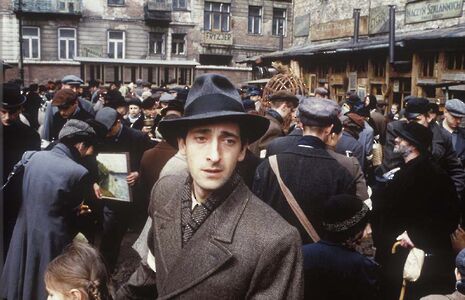Interview: Eva Clarke
Ellie Olcott sits down to discuss Holocaust education with survivor Eva Clarke

Eva Clarke is a Holocaust survivor who has devoted her life to educating people about the atrocities of the concentration camps in an attempt to keep anti-Semitism and prejudice at bay. She talks primarily about her mother’s experience in the concentration camps, where she gave birth to Eva.
It is a blessing to have people like Eva Clarke, a formidable woman who speaks in a lucid and gathered manner, rendering her story of the Holocaust accessible to the public and outlining its contemporary relevance. In a similar manner, Eva suggests watching Schindler’s List and The Pianist; films which she said transported her mother back to the camps due to the realistic nature of their filming. Eva does not have any memory of life in the camps but as she grew up, her mother gave her more and more detailed descriptions of their incredible story of survival. She brings her story alive in the Cambridge Union with recantations of her mother’s memories, along with pictures of the camps she lived in.
Eva’s mother Anka, volunteered to follow Eva’s biological father from Terezin to Auschwitz after being told she would be able to see him again there. Sadly, she never did see Bernd, whom she later learnt was shot a few days before the Russians liberated the camp. Bernd never knew that Anka was pregnant with Eva. Eva tells the audience that many people died of starvation at Auschwitz, after only having consumed coffee in the morning, and soup, possibly with some bread in the evening. She says one would wake up in the morning to find people had died next to you in the night. They were forced to live in accommodation that resembled a “chicken pen”. At this point in Anka’s life, she resembled a “scarcely living pregnant skeleton” and it seems miraculous that she was able to survive.
What struck me most about Eva and Anka’s story was the fact that Anka felt the most desolate and hopeless when she left the camp, having lived through unspeakable pain and loss, to find that she had no close relatives to go to, no home and no money. The Holocaust did not end with the defeat of the Nazi party; the victims still bear the scars of their experience. With this in mind I ventured to inquire about her thoughts on the provision for Holocaust survivors. She replies, “different people had different experiences” but “a lot of people came back to nobody and nothing… and an awful lot of people committed suicide… because having gone through those experiences, you do need support”. In the end, Anka and Eva were fortunate enough to find some cousins living in Prague who took them in and formed their support group.
The motto of The Holocaust Educational Trust, who accompanied Eva to the Union is: “When we understand where prejudice leads, we can stop it in its tracks”. Her mission to educate has led her to visit Auschwitz on several occasions, talking to groups there about her story. Each time she went, Eva said her mother would humorously challenge her decision to go, joking, “once was enough for me!”
There has been a lot of media attention on the rise of anti-Semitism is Europe, which surely must dismay the woman who has dedicated her life to halting its resurgence? On the issue, she tells me that her mother was not “euphoric” when the Berlin Wall came down, instead envisioning a darker sequence: “Wall comes down: rise of neo-Nazism, the rise of far-right groups, the rise of fascism. She was right… In former Eastern European countries this history was not taught so all these young people have not grown up knowing the history”. With the ignorance of these groups in mind, what does she think about Germany’s law prohibiting the denial of the Holocaust? Does it constitute an infringement of freedom of speech? She says in her talk that “on the whole I am for freedom of speech” but tells me that while she “wouldn’t want it to be a crime anywhere else... I do think its appropriate in Germany”.
The law prohibiting the denial of the Holocaust seems to enhance the aims of Eva’s project to educate people. It acts as a forceful symbol that people are obliged to respect the truth of what happened and that any attempt to deny it would be the deepest insult to the 6 million Jews who were killed by the Nazis in WWII.
 News / Uni Scout and Guide Club affirms trans inclusion 12 December 2025
News / Uni Scout and Guide Club affirms trans inclusion 12 December 2025 News / Cambridge Vet School gets lifeline year to stay accredited28 November 2025
News / Cambridge Vet School gets lifeline year to stay accredited28 November 2025 News / Cambridge study finds students learn better with notes than AI13 December 2025
News / Cambridge study finds students learn better with notes than AI13 December 2025 Science / Did your ex trip on King’s Parade? The science behind the ‘ick’12 December 2025
Science / Did your ex trip on King’s Parade? The science behind the ‘ick’12 December 2025 News / Pembroke to convert listed office building into accom9 December 2025
News / Pembroke to convert listed office building into accom9 December 2025







